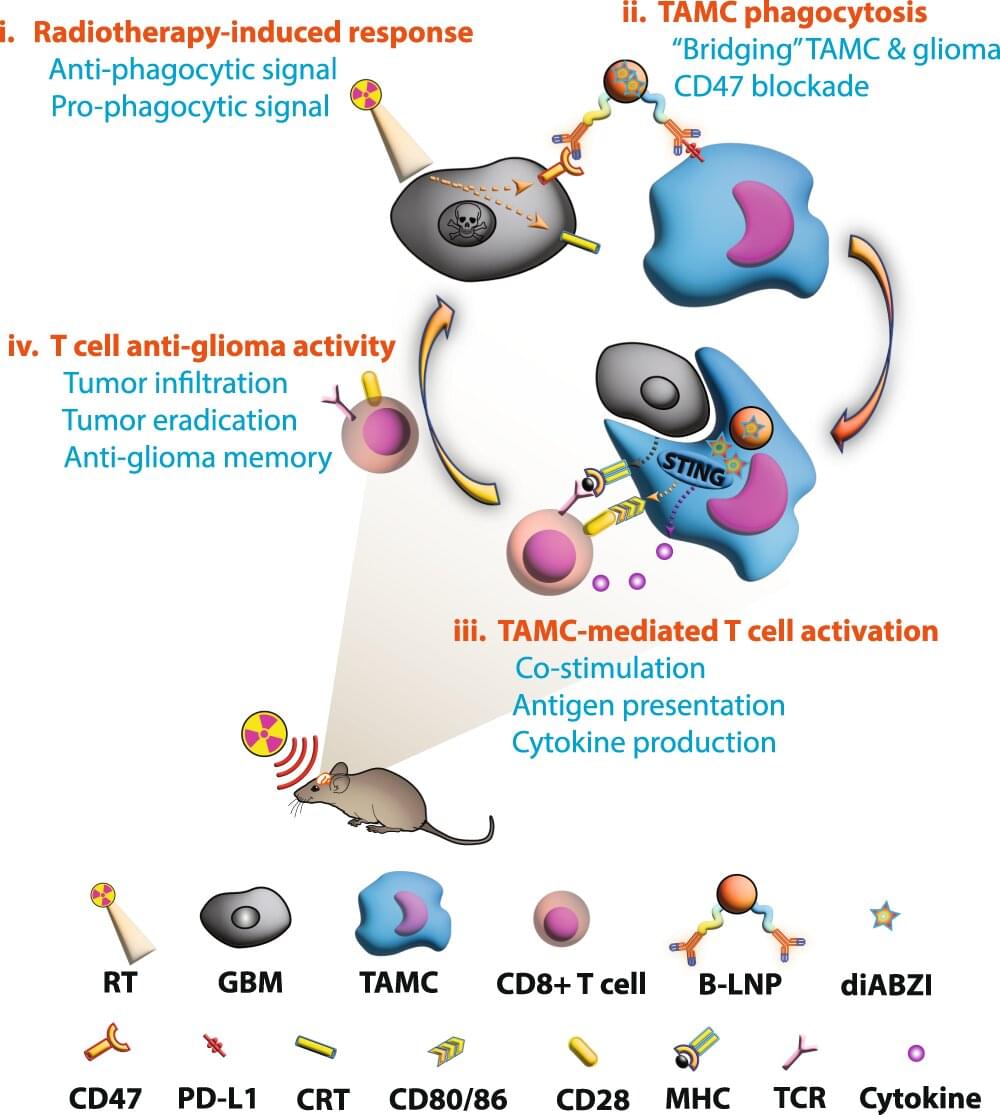Northwestern Medicine investigators have developed a novel nanoparticle treatment for glioblastoma, according to a study published in Nature Communications.
Glioblastoma, the most common type of primary brain cancer, is one of the most complex, deadly and treatment-resistant cancers, according to the National Brain Tumor Society. The five-year survival rate for glioblastoma patients hovers near 7% and has remained unchanged for decades.
Previous Northwestern Medicine research has shown that glioblastoma tumors accumulate large numbers of immunosuppressive tumor-associated myeloid cells (TAMCs), which impairs the immune system’s ability to fight the tumor and reduces the effectiveness of radiation and chemotherapy.
